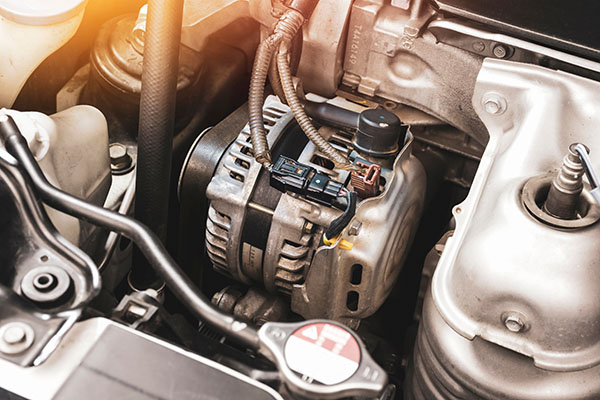
Have you ever wondered about that component under your car's hood, silently working to keep everything powered and running smoothly? We are talking about the topic of today's article, the alternator - a small yet mighty component that plays a pivotal role in your vehicle's electrical system. With that said, questions arise - what does it do exactly, and is it really that important?
What Does The Alternator Do?
While the engine may be the heart of your car, the alternator can be considered its powerhouse. Its primary function is to generate electrical energy to power the various electrical systems in your vehicle, including lights, air conditioning, and the crucial charging of your car's battery.
Charging the Battery
The alternator acts as a battery charger on the go. As you drive, the alternator transforms mechanical energy from the engine into electrical energy, which is then used to charge the car battery. This continuous charging process ensures that your battery remains at an optimal level, ready to start the engine and power other electrical components.
Powering Electrical Systems
Beyond the battery, the alternator supplies electrical power to the entire vehicle. From the headlights illuminating your path to the radio playing your favorite tunes, the alternator provides the necessary electricity to keep these systems operational. This capability is particularly crucial when you consider the increasing array of electrical features in modern cars.
Maintaining Voltage Stability
The alternator is not just about generating power; it's about maintaining voltage stability. It produces a consistent electrical output, typically at around 14 volts, ensuring that all electrical components receive a steady and reliable supply. This stability is vital for the proper functioning of sensitive electronic systems in your car.
Powering the Ignition System
Your car's ignition system relies on a spark to start the engine. The alternator ensures that the spark plugs receive the necessary electrical energy to generate this spark, initiating the combustion process that powers your engine. In essence, the alternator contributes to the very ignition that sets your car in motion.
Efficiency in Energy Conversion
The alternator's efficiency lies in its ability to convert mechanical energy from the engine into electrical energy with minimal waste. This efficient energy conversion is essential for the overall performance of your vehicle and contributes to fuel efficiency by ensuring that the engine does not need to expend excessive energy on electrical power generation.
Aren't The Battery and Alternator the Same?
A common misconception often arises about the relationship between the battery and the alternator: are they the same thing? The short answer is no. While both play integral roles in your car's electrical system, they serve different functions.
The battery is essentially a storage unit for electrical energy, providing the initial power needed to start the engine and supporting electrical components when the car is not running. On the other hand, the alternator is a dynamic generator that produces electrical energy as the engine runs, replenishing the battery and powering the vehicle's electrical systems in real time.
Think of the battery as a reserve and the alternator as the continuous source that keeps it charged.
Battery and Alternator Services in Suwanee, Decatur & Marietta!
If you think that your battery is due for a change or are experiencing a faulty alternator, contact us at Neighborhood Tire Pros, and we will be happy to assist!